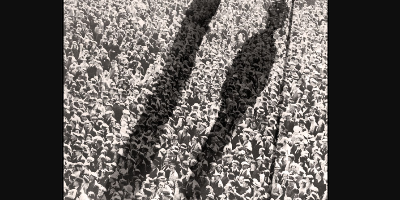feb 7, 1892 - February 7 1892, Hamp Biscoe, a farmer, and his family were killed in Keo (Lonoke County), Arkansas for refusing to give up his land
Description:
Hamp Biscoe, was a hard-working farmer, who lived near England, Arkansas, on a small farm with his family. The original trouble which led to the lynching was a quarrel between Biscoe and a white man about a debt. Six or seven years after Biscoe had acquired the land, the man who had first shown him the land appeared and proceeded to ask him for $100 in payment for doing so. Biscoe refused to pay, the man filed and won a judgment, and the land was sold to pay off the debt. In consequence, according to R.H. CarlLee's account from the Arkansas Democrat, “The negro had become crazy of the injustice done him to such an extent that he would permit but few men, white or black, to come on the place, suspecting all of wanting to steal his place from him.” The whole town regarded Biscoe as someone who had gone crazy or insane because he had this huge fear of people trying to steal his farm.Sometime during the first week of February 1892, Biscoe’s neighbor, a white man named Mr. Venable, let down the fence between their properties and attempted to pass through Biscoe’s field. Biscoe drove him away with violent threats. Venable filed a complaint, and a warrant was issued. Deputy Constable Jonathan Ford took a colored deputy and two white men out to Biscoe's farm to make the arrest. Biscoe declared that he “would not be arrested alive, and would kill them all if they attempted it.” Biscoe went into his house, got his gun, and ordered them off the property. Ford, ignoring his warning, advanced and opened the gate into the yard when Biscoe shot him in his side. Ford managed to draw his gun and shoot, inflicting a scalp wound on Biscoe and wounding his wife in the arm. The deputy then shot Biscoe in his back as he was running back into the house. Ford's wound was not dangerous and in a few days he recovered. Biscoe, however, was so severely shot that he was unable to stand after the firing was over.
Two other white men hearing the exchange of shots went to the rescue of the officers, forced open the door of Biscoe's cabin and arrested him, his pregnant wife and thirteen-year-old son, and took them together, with a baby at the wife's breast, to a small frame house, where they were put under the guard of two young African-American men. While there were rumors that the family would be lynched, most thought it wasn't likely to happen, as Ford was not severely wounded, and Biscoe was both severely wounded and known to be mentally deranged. Later that night, 12-15 men came to the house and told the Afro-American guards that they should leave, which they did, going to a nearby black church, where they tried to persuade the preacher to stop the mob. The shooting, however, began in minutes, with as many as forty shots being fired. The murderers left immediately afterward, and the African Americans from the church went to the house, where they found Biscoe and his wife dead, and the baby with a slight wound near its upper lip. The Biscoes’ son, while seriously wounded and not having many hours left to live, was able to talk coherently about the shootings.
According to the boy’s account, his father was shot first. When the boy tried to escape from the house, a young man shot him in the abdomen. Another man shot the boy’s mother, while a “taller young man whom he did not know” shot his father yet again. After killing the boy’s two parents, one of the murderers removed $220 that the boy’s mother had hidden in her stocking. Apparently, she had been seen with the money earlier in the day and had accused the killers of attacking the family to get the money. On their way out the door, one of the murderers turned the boy over and shot him again, this time in the chest. They left, and the remainder of the crowd waiting out in the yard fired a number of shots into the air and then also departed.
All of those events happened because of the sole reason that Biscoe refused to give up his land. His whole family; his pregnant wife, unborn child,13 yr old son, and himself are all dead. Which leaves the infant child, who was left alive with a minor wound, now an orphan; all alone with no family. The level of lawlessness and barbarism that plagued the South to where a family, including children and an unborn baby, could be murdered in cold blood with no repercussions, is heinous and appalling.
Added to timeline:
Date:
feb 7, 1892
Now
~ 133 years ago
